‘Being idle is a disease’
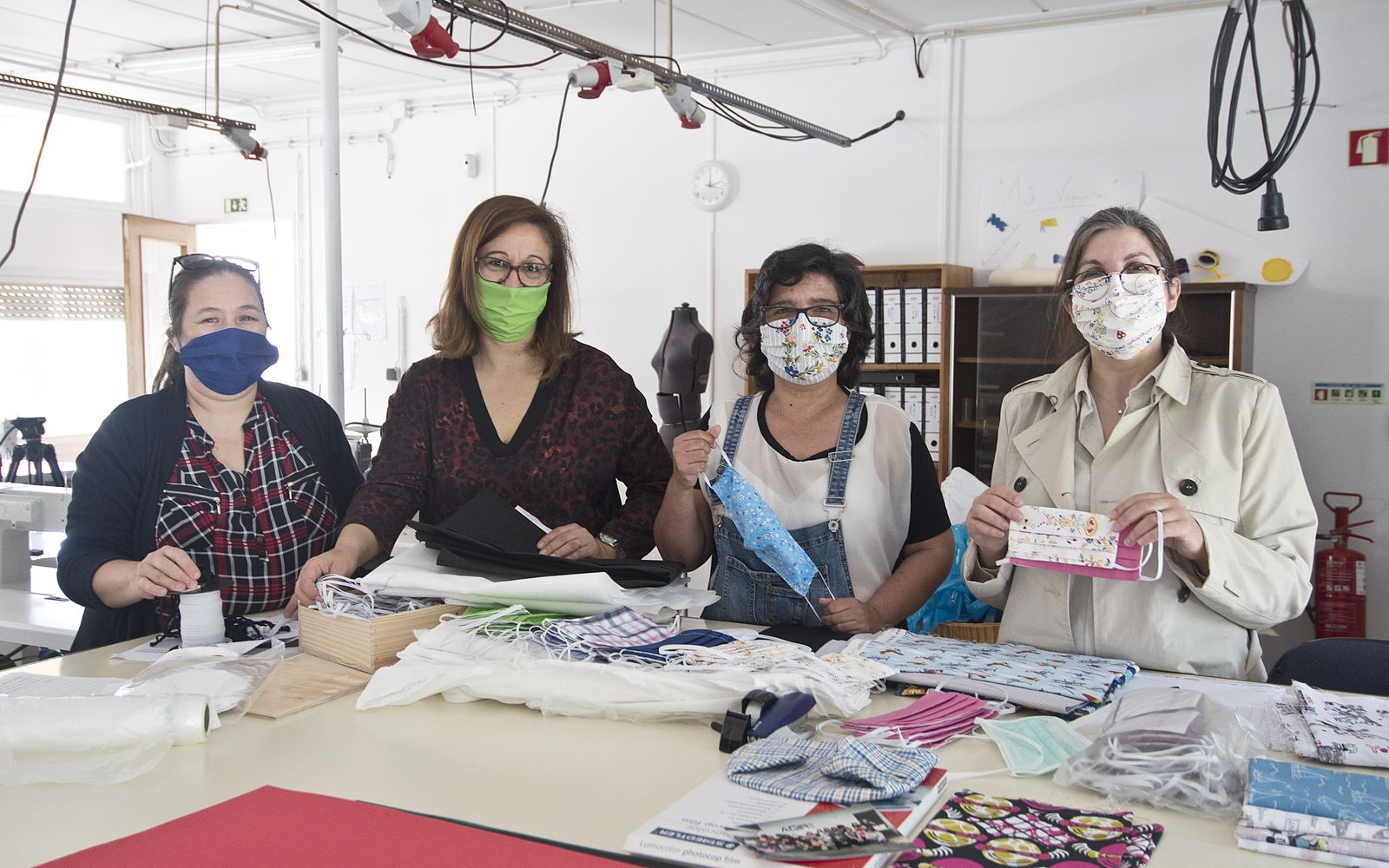
“Good morning fellow neighbours, I’m here on behalf of CAIS, just next door. I’m wondering if you have an extra mask…” It was a Wednesday morning, the day of the week when the participants of the “new” project Molde 50 gathered to hand in work, exchange ideas and be together for a while during the pandemic.
Covid-19 has made their lives more uncertain and made them stay behind closed doors. Ironically, the virus would also allow them to open a window and share a moment together, even if they were confined. On that first Wednesday, after the end of the state of emergency, Fátima Quinta, the head of the project Molde 50, gathered around a table with the 4 women that said yes to the challenge.
Each one of them brought homemade masks to be delivered to the parish council and Mansão (a nursing home) in Marvila. It was a way of not only helping the community but also of repaying the support – social and psychological, the occupation in (frequent) times of unemployment, and the efforts towards social inclusion – that the community was giving them, explained Fátima Quinta. It was also an opportunity to put into practice the lessons they received in the context the project of professional reconversion and social integration Molde 50 (created by AGIR XXI and supported by the Active Citizens Programme – EEA Grants/Calouste Gulbenkian Foundation).
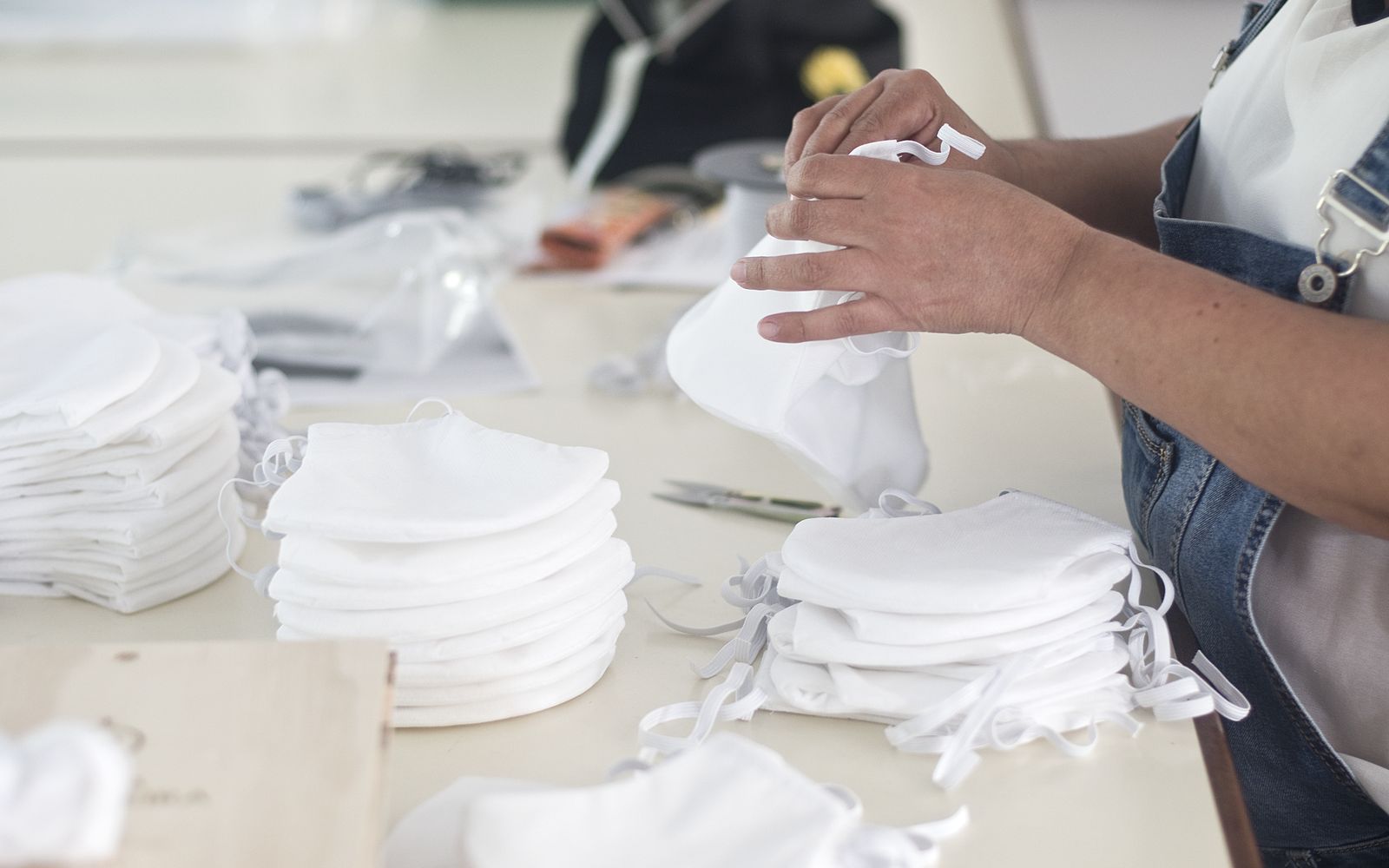
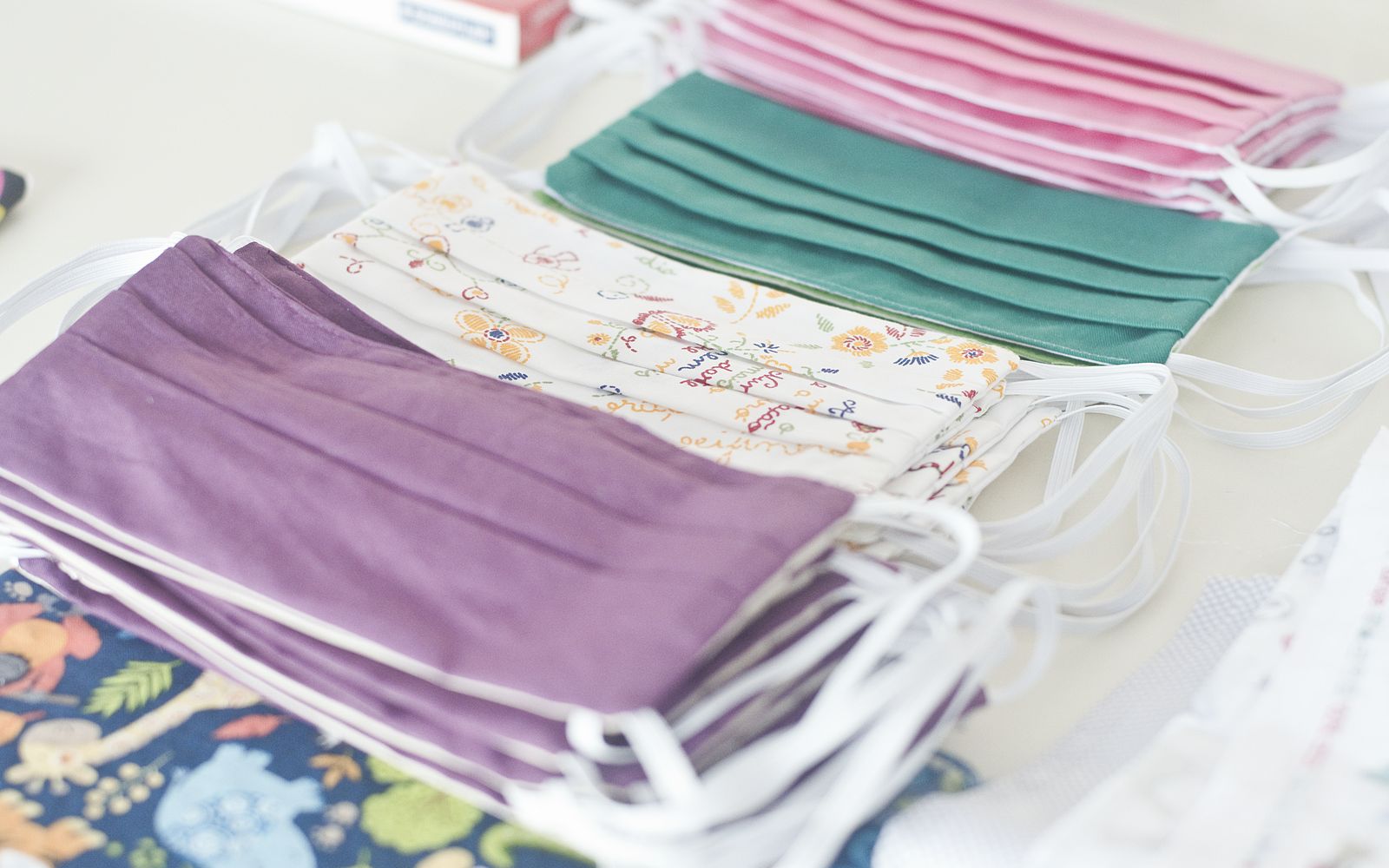
Sewing in the name of reintegration
Besides the masks, Sandra Lobo also brought a cap with her, to show her colleagues. If the prototype is improved, it can be used by healthcare professionals or cooks.
Sandra is 51 years old and has already gone through several periods of unemployment. She was a professional in the field of photography, working for a brand who sold photographic equipment, but today she sees herself as a victim of the digital revolution. Since then, she has tried other jobs (as a cook in a school and as a shop assistant) but she had no success. Injuring her spine was also a major setback. But “being idle is a disease”, she says. Having been raised by her grandmother, who was a tailoress, she decided to take on a sewing course at IEFP.
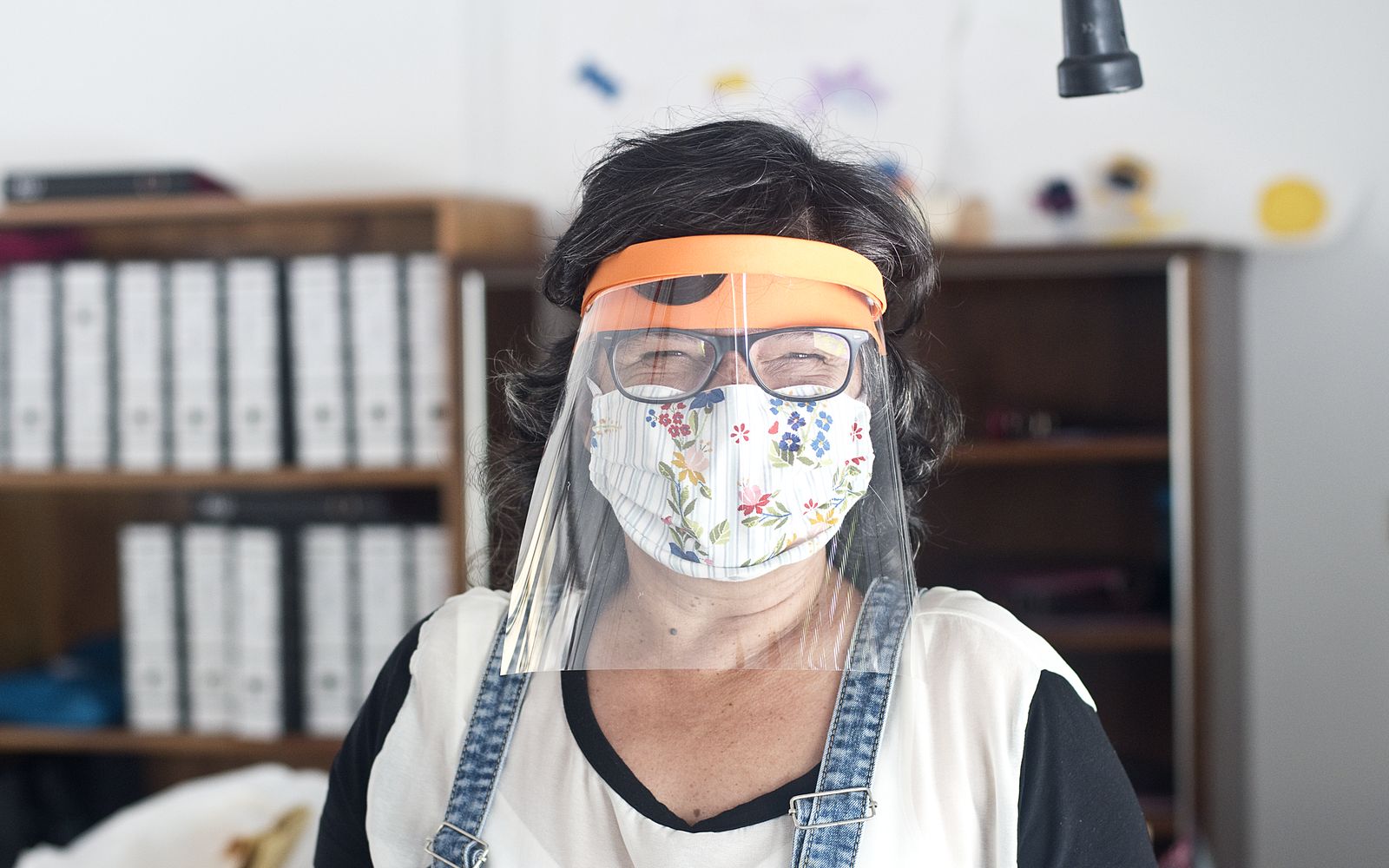
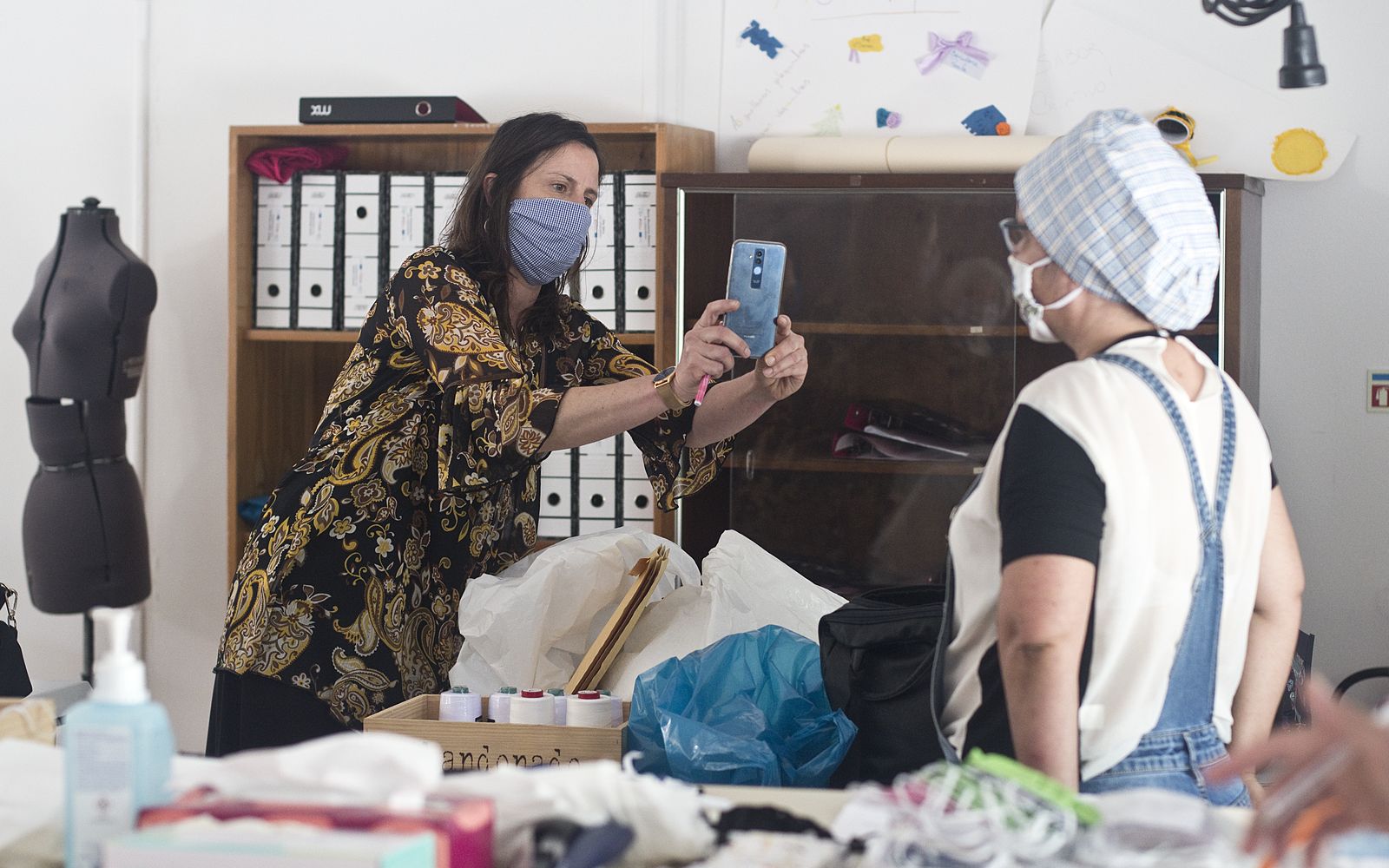
She did a 4-month long course at AGIR XXI and an internship of 4 weeks at Teatro Nacional D. Maria II. The next step would have been a workshop on brand creation. Marina Melo, who is 52, was trailing the same path. She was an audio-visual technician who went through periods of unemployment and did her internship as a tailoress doing Carnival suits. She had work until the festivals of Popular Saints (in June). But then came Covid-19… In both cases, reintegration in working life – the ultimate goal of AGIR XXI – could have been just around the corner.
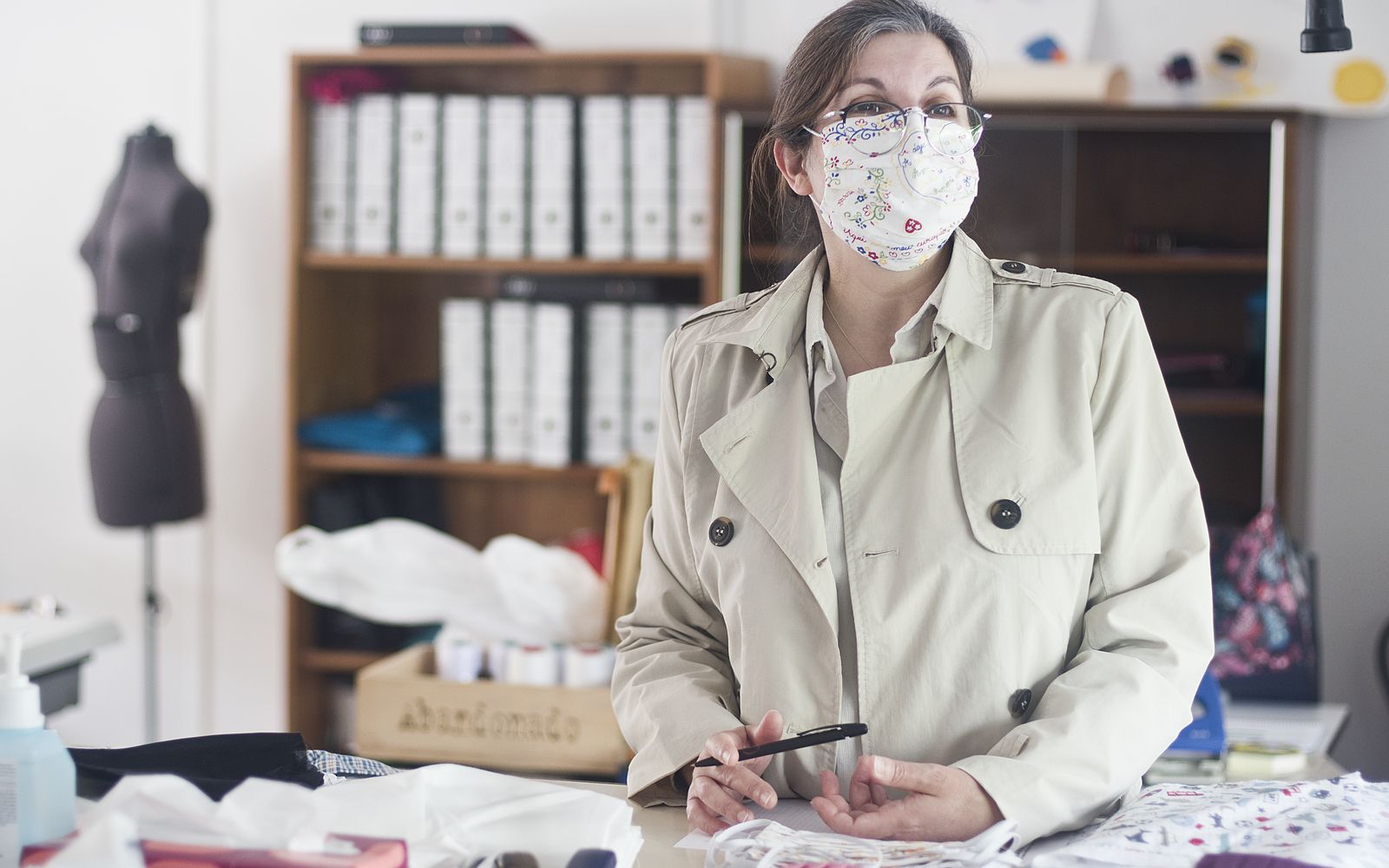
When luck knocks on your door
Sandra and Marina were both lucky to have their own sewing machines. Paula Pires, who is 54, also had one when she gladly joined the “masks brigade”. But greater luck would strike when quarantine had just started. She received a phone call that would change her plans. The factory where she had left a resumé called and offered a job. She started working in April and, despite having little time, decided to continue working on the project.
There is another visitor at the door. Maria Ana, from a volunteer association, came in search of masks. After a while, they would receive a message saying that they had been delivered to the city parish of S. Vicente, who would then hand them to Banco Alimentar. It all started with the community of Marvila but was now spreading just like the virus. People from S. Vicente, along with police officers and firefighters from across the city, were also wearing their masks.
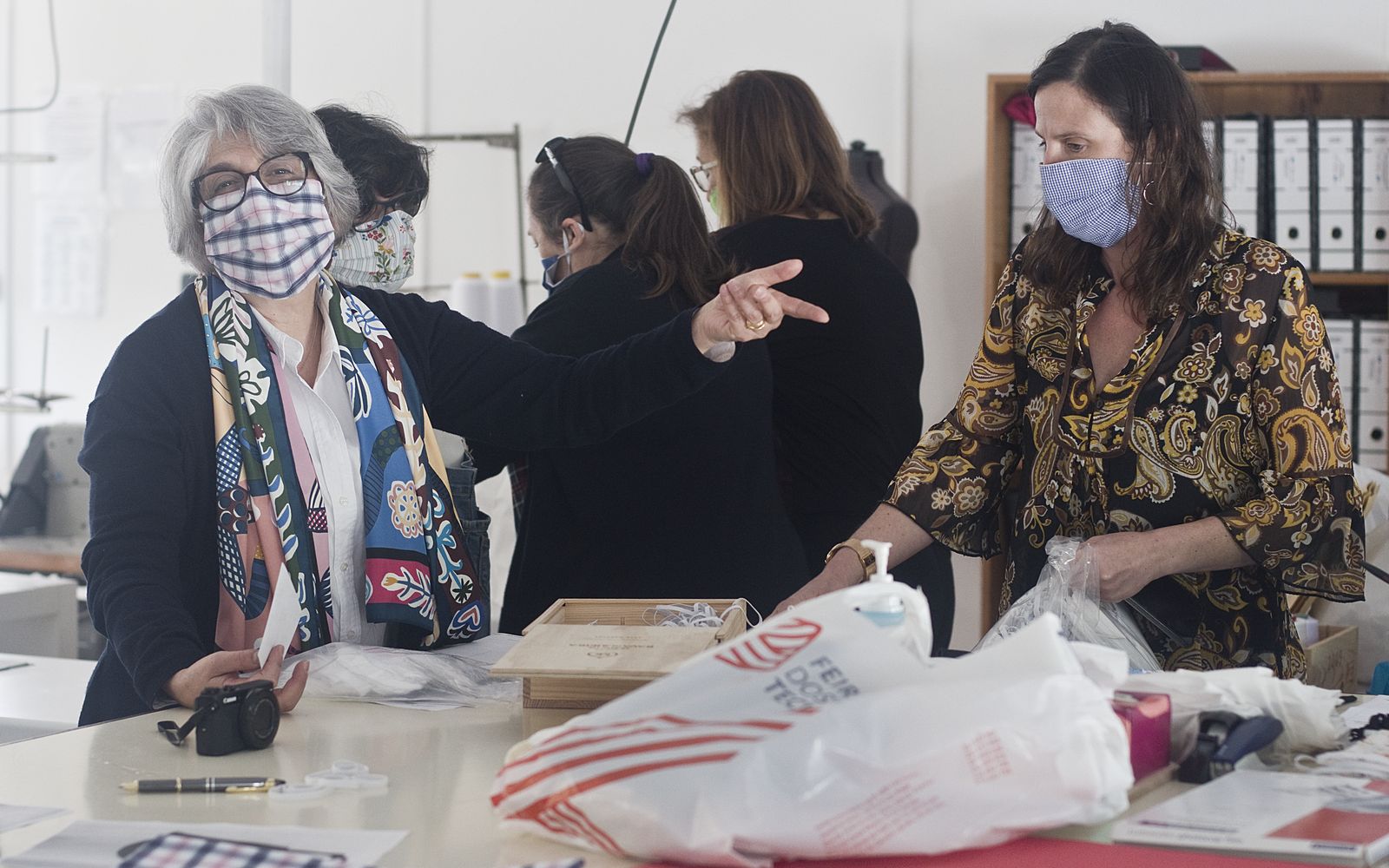
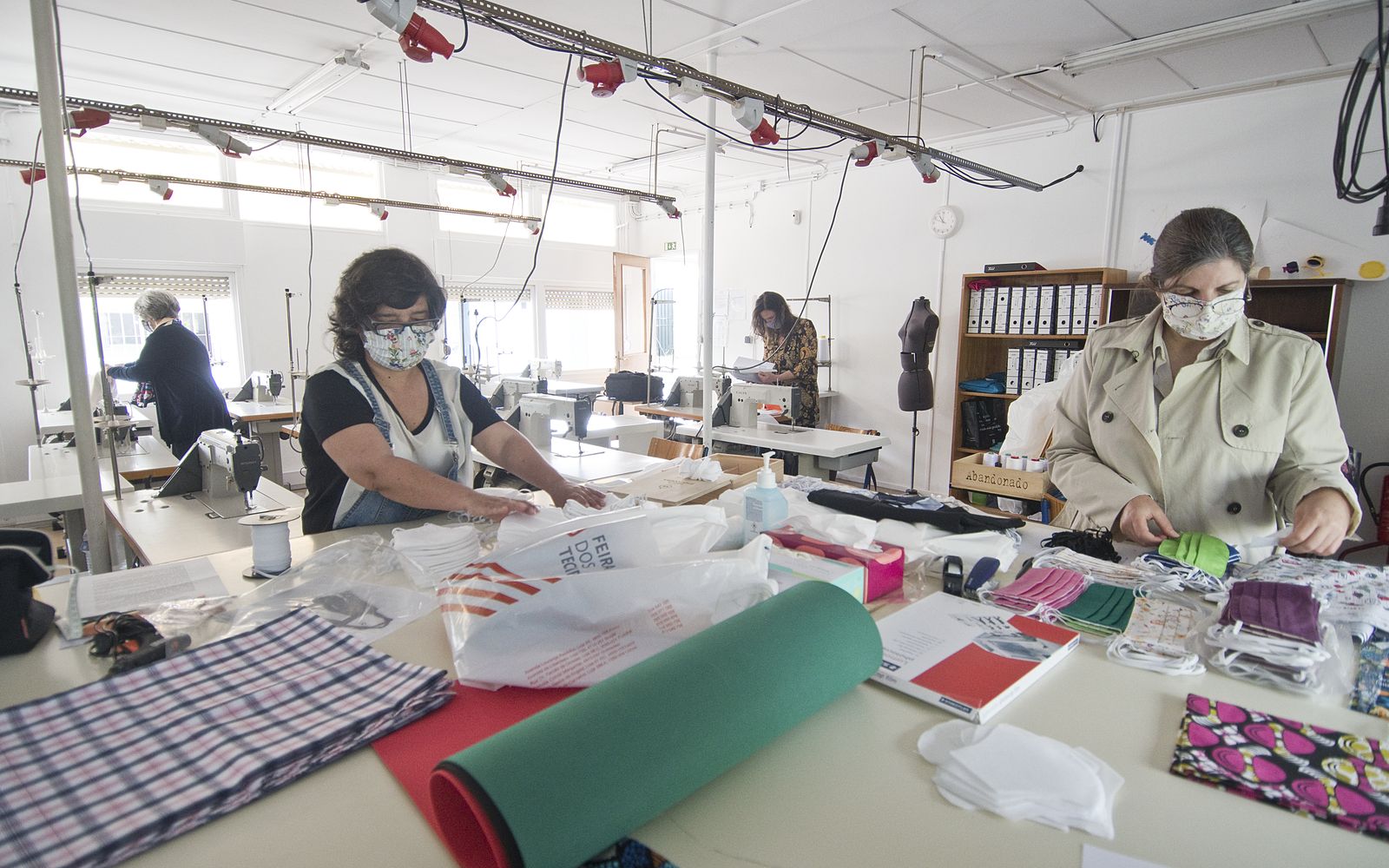
The four volunteers (Sandra, Marina, Paula and Zélia, who does not have a sewing course, but helps with the elastics) can produce 90 masks a week. But they also invest their time in doing caps, face visors and masks for children. Covid-19 dictated the reinvention of the project.
Now, we must face these new times without loosing sight of these women – who knew difficult situations like unemployment or domestic violence – and remain at risk of social exclusion.
Going back to beginning of this story, luck also knocked on the door of the neighbour from CAIS. He got to keep two masks. A week later, another six were made for his colleagues.

